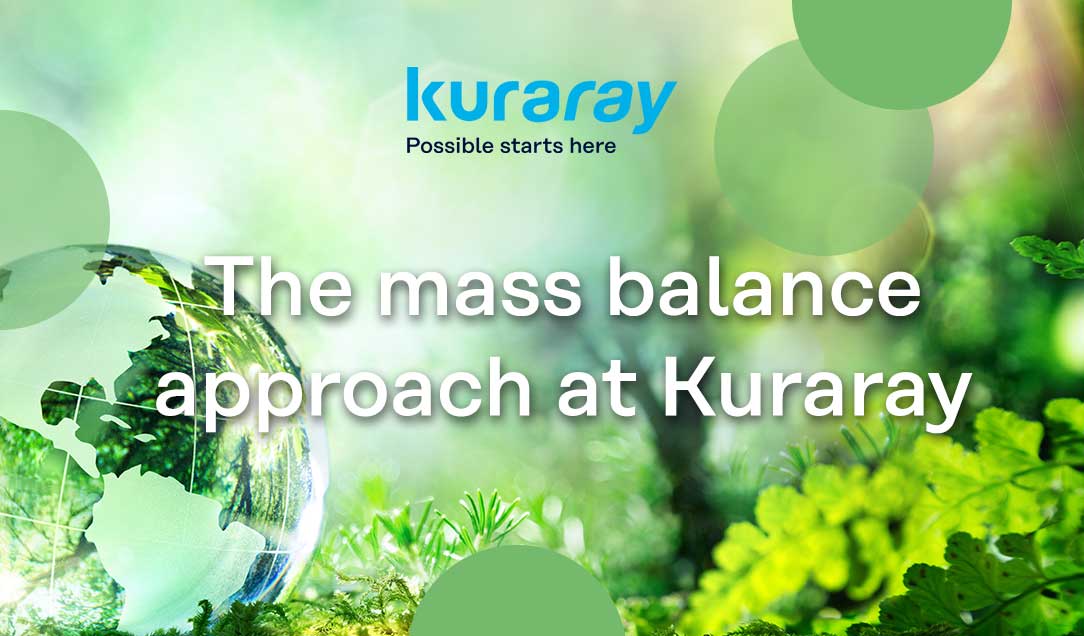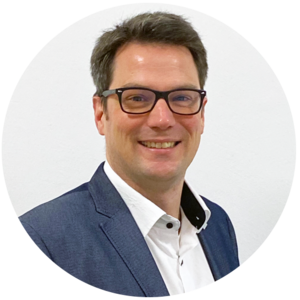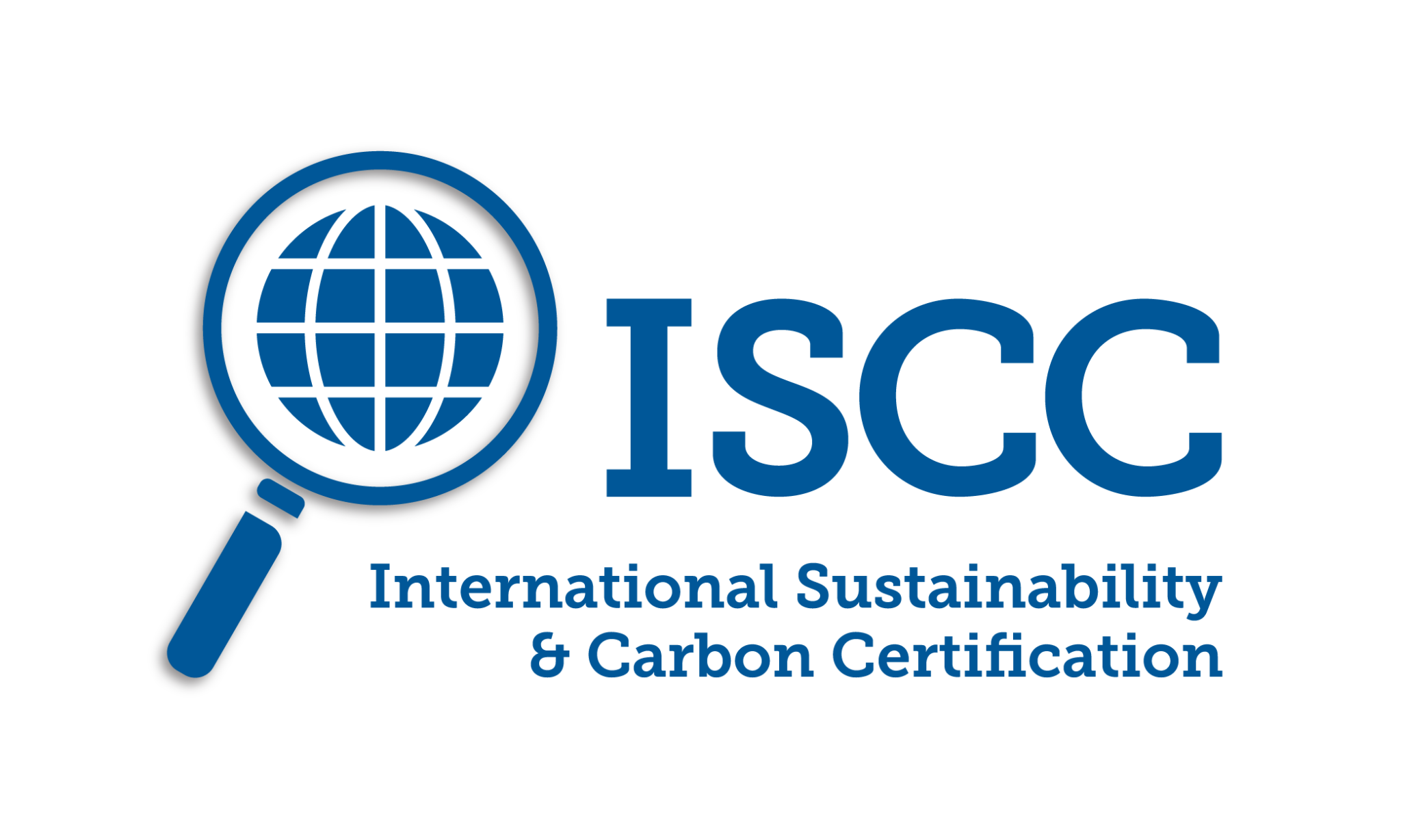 Contact
Contact
Do you have any questions,
need technical support or
would like to place an order?
Order form
Kuraray Europe GmbH Sustainability Blog The mass balance approach at Kuraray
 Contact
Contact
Do you have any questions,
need technical support or
would like to place an order?

Climate change is the biggest ecological challenge of our time. What is needed is decisive action and a rapid shift to a climate-neutral circular economy. As part of our PASSION 2026 management plan and its pillars “Planet”, “Product” and “People”, at Kuraray we are working intensively on switching to sustainable raw materials in our production processes. The mass balance approach is a key lever for this.
Recycled and renewable raw materials are becoming increasingly important as we head towards a circular economy. However, integrating them into existing production systems is challenging because no company can completely change its infrastructure overnight. Therefore, sustainable raw materials have to be integrated stepwise into existing processes. That is the only way to progressively reduce the use of fossil-based raw materials and improve the carbon footprint of products.
This is where the mass balance approach comes in: it is an established method of evaluating sustainability and allows a gradual transition to sustainable inputs – without making fundamental changes to production plants and processes. This approach is mainly used by companies in the chemical, plastics and energy industries – including Kuraray.

“We want to use this pragmatic approach to scale back our dependence on fossil-based resources and significantly reduce the carbon footprint of our products and production processes. That enables us to meet our customers’ expectations and add sustainable alternatives to our portfolio.”
Jörg Schappel
Head of Safety, Health & Sustainability at Kuraray Europe GmbH (KEG)
The method works as follows: sustainable raw materials are fed into the production process alongside conventional fossil feedstocks. The material streams are not physically separated. Although the inputs are mixed and can no longer be distinguished from each other, the mass balance approach allows mathematical attribution of the respective proportions. It is therefore possible to demonstrate that a certain amount of fossil resources have been replaced by sustainable alternatives. An accounting process is used to allocate the sustainable inputs to the end-product, so a balance between inputs and output is ensured.
In this way, fossil raw materials can be replaced by a proportion of bio-based or recycled alternatives without the need for separate production facilities. As a “drop-in” solution, the mass balance approach allows production of chemical products from different types of raw materials within a single production process without any loss of quality.
There is some criticism of the mass balance approach, especially the fact that the sustainable raw materials can only be attributed arithmetically and not physically to the end-product. That can lead to misunderstandings. Maximum transparency and reliable documentation along the entire supply chain are therefore extremely important. Independent certification plays an important part in this: external audits ensure that products and processes comply with the defined sustainability and quality standards. That enhances the trust of customers, business partners and authorities and helps companies reliably meet regulatory requirements.
The mass balance approach also allows independent validation of the proportion of sustainable inputs and their origin. For example, by ISSC (International Sustainability & Carbon Certification), a globally recognized certification system.
Polyvinyl alcohol (PVOH)
Brand names: KURARAY POVAL™, ELVANOL™, EXCEVAL™
Produced in: Frankfurt a. M. Germany; La Porte und Bayport, USA
Polyvinyl butyral (PVB)
Brand name: MOWITAL®
Produced in: Frankfurt a.M., Germany
Ethylene vinyl alcohol copolymer (EVOH)
Brand name: EVAL™ EVOH
Produced in: Antwerpen, Belgium
Polyvinyl alcohol (PVOH) films
Brand name: MonoSol
Produced in: La Porte, USA
Thermoplastic elastomers
Brand names: SEPTON™, HYBRAR™
Produced in: Kashima, Japan
Liquid rubber
Brand names: KURARAY LIQUID RUBBER
Produced in: Kashima, Japan
Polymethylmethacrylate (PMMA)
Brand name: PARAPET™
Produced in: Niigata, Japan
The range of certified products is continuously increasing as Kuraray fulfils its vision of becoming a chemical company that grows sustainably with high-quality and responsibly produced products that make a positive contribution for people and the planet.
Sustainability as an opportunity Kuraray obtains ISCC PLUS certification ISCC System
